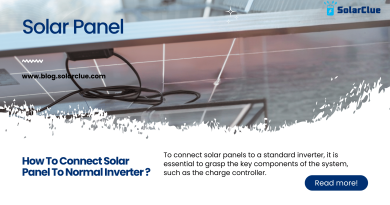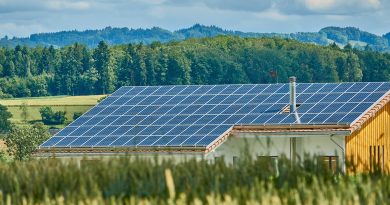Do Solar Panels Wear Out Over Time?
Solar panels are an investment in clean energy and long-term cost savings. Understanding their durability and lifespan is crucial for maximizing their value. This comprehensive guide will explore the factors that contribute to solar panel degradation, such as environmental conditions, manufacturing quality, and installation practices, and provide insights into warranties and insurance coverage for solar panels.
Table of Contents
- 0.1 The Lifespan of Solar Panels and Factors Affecting It
- 0.2 Environmental Factors and Their Impact on Solar Panel Durability
- 0.3 Manufacturing Quality and Its Role in Longevity
- 0.4 Proper Installation and Maintenance for Extended Lifespan
- 0.5 Solar Panel Degradation and Its Effects on Efficiency
- 0.6 Warranties and Insurance Coverage for Solar Panels
- 0.7 The Future of Solar Panel Technology and Its Impact on Lifespan
- 0.8 Comparing the Lifespan of Different Solar Panel Types
- 0.9 The Role of Solar Panel Maintenance in Extending Lifespan
- 0.10 Case Studies of Long-Lasting Solar Panel Installations
- 1 Table: Key Factors Influencing Solar Panel Lifespan
- 2 FAQs
- 3 Conclusion
The Lifespan of Solar Panels and Factors Affecting It
Solar panels typically have a lifespan of 25 to 30 years. However, this doesn’t mean they stop working after this period; rather, their efficiency gradually decreases over time. Several factors influence the lifespan of solar panels, including:
- Material Quality: High-quality materials used in the manufacturing process generally lead to longer-lasting panels.
- Environmental Conditions: Panels exposed to extreme weather conditions may degrade faster than those in milder climates.
- Installation Practices: Proper installation ensures that panels are securely mounted and protected from potential damage.
Environmental Factors and Their Impact on Solar Panel Durability
Environmental conditions play a significant role in the durability of solar panels. Factors such as temperature fluctuations, humidity, snow, wind, and UV radiation can affect the longevity of the panels:
- Temperature Fluctuations: Extreme changes in temperature can cause expansion and contraction in the panel materials, leading to potential micro-cracks.
- Humidity and Water Exposure: Moisture can infiltrate poorly sealed panels, leading to corrosion and reduced efficiency.
- Snow and Wind Loads: Heavy snow accumulation and strong winds can physically damage panels if not properly installed.
- UV Radiation: Prolonged exposure to intense sunlight can degrade the materials in the panels over time.
Manufacturing Quality and Its Role in Longevity
The manufacturing quality of solar panels is a critical determinant of their lifespan. Panels produced with high-quality materials and advanced manufacturing techniques tend to last longer and perform better. Key aspects of manufacturing that influence durability include:
- Material Purity: The use of pure silicon and other high-grade materials can reduce the likelihood of defects.
- Panel Design: Innovations like anti-reflective coatings and robust framing can enhance panel longevity.
- Quality Control: Rigorous testing and quality assurance processes during manufacturing help ensure that only durable panels reach the market.
Proper Installation and Maintenance for Extended Lifespan
Proper installation is essential for maximizing the lifespan of solar panels. Poor installation can lead to physical damage, electrical issues, and reduced efficiency. Important considerations include:
- Secure Mounting: Panels must be securely attached to withstand environmental stresses like wind and snow.
- Proper Wiring: Electrical connections should be secure and protected from moisture and corrosion.
- Regular Maintenance: Routine cleaning and inspections can prevent minor issues from becoming major problems.
Solar Panel Degradation and Its Effects on Efficiency
Solar panel degradation refers to the gradual reduction in efficiency as panels age. The rate of degradation is typically around 0.5% to 1% per year, meaning that after 25 years, a panel may operate at 75-87.5% of its original capacity. Degradation can be caused by:
- Micro-Cracks: Tiny cracks in the silicon cells can reduce the panel’s ability to generate electricity.
- Corrosion: Exposure to moisture can corrode the electrical contacts and reduce efficiency.
- Delamination: Separation of the layers within the panel can impair performance.
Warranties and Insurance Coverage for Solar Panels
Most solar panels come with warranties that cover both product defects and performance. Typical warranties include:
- Product Warranty: Covers manufacturing defects and usually lasts for 10-25 years.
- Performance Warranty: Guarantees a certain level of efficiency, often around 80% after 25 years.
Insurance coverage for solar panels typically falls under homeowners’ insurance, but it’s important to confirm that your policy covers damage from events like storms, fire, and theft. Additional coverage may be needed for specific risks.
The Future of Solar Panel Technology and Its Impact on Lifespan
Advancements in solar technology are likely to extend the lifespan and durability of solar panels. Innovations such as more resilient materials, improved manufacturing processes, and enhanced protective coatings are expected to reduce degradation rates and improve long-term performance. The future may also see the development of self-healing materials and panels designed for easier recycling.
Comparing the Lifespan of Different Solar Panel Types
Different types of solar panels have varying lifespans and durability:
- Monocrystalline Panels: Known for their longevity, these panels often have the longest lifespan due to their high purity silicon.
- Polycrystalline Panels: Slightly less efficient than monocrystalline, but still offer a long lifespan.
- Thin-Film Panels: Generally have a shorter lifespan but are lighter and more flexible, making them suitable for specific applications.
The Role of Solar Panel Maintenance in Extending Lifespan
Regular maintenance is key to ensuring that solar panels last as long as possible. Maintenance tasks include:
- Cleaning: Removing dust, dirt, and debris to maintain optimal efficiency.
- Inspection: Checking for physical damage, corrosion, and loose connections.
- Monitoring Performance: Keeping track of energy output to identify potential issues early.
Case Studies of Long-Lasting Solar Panel Installations
Several solar panel installations have demonstrated impressive durability and longevity:
- Kyocera Solar Power System in New York: Operating for over 40 years, this system still functions at about 80% of its original capacity.
- Smoky Hills Wind Farm in Kansas: Integrating solar panels with wind turbines, this installation has proven durable under harsh weather conditions for over 15 years.
- Negev Desert Installation in Israel: Panels in this extreme environment have shown minimal degradation after decades of operation, thanks to advanced materials and protective coatings.
Table: Key Factors Influencing Solar Panel Lifespan
| Factor | Impact on Lifespan |
|---|---|
| Material Quality | Higher quality materials lead to longer-lasting panels. |
| Environmental Conditions | Harsh climates can accelerate degradation. |
| Installation Practices | Proper installation ensures durability and performance. |
| Maintenance | Regular maintenance can extend the lifespan of panels. |
| Manufacturing Quality | Rigorous quality control during production ensures longevity. |
| Technology | Advances in technology can reduce degradation rates. |
FAQs
Q1: How long do solar panels typically last?
Solar panels generally last 25 to 30 years, though they can continue to operate with reduced efficiency beyond this period.
Q2: What causes solar panel degradation?
Solar panel degradation is caused by factors such as micro-cracks, corrosion, UV exposure, and temperature fluctuations.
Q3: Can I extend the lifespan of my solar panels?
Yes, regular maintenance, proper installation, and choosing high-quality panels can help extend their lifespan.
Q4: What does a solar panel warranty cover?
A solar panel warranty typically covers product defects and performance, with product warranties lasting 10-25 years and performance warranties guaranteeing a certain efficiency level after 25 years.
Q5: Are all solar panel types equally durable?
No, different types of solar panels have varying lifespans. Monocrystalline panels tend to last the longest, followed by polycrystalline and thin-film panels.
Q6: How do environmental conditions affect solar panels?
Extreme weather conditions, such as high temperatures, heavy snow, and strong winds, can accelerate solar panel degradation and reduce their lifespan.
Q7: Is insurance coverage necessary for solar panels?
While solar panels are often covered under homeowners’ insurance, it’s important to ensure that your policy covers specific risks like storms and theft. Additional coverage may be required for full protection.
Conclusion
Understanding the durability and lifespan of solar panels is essential for anyone investing in this technology. By considering factors such as environmental conditions, manufacturing quality, installation practices, and regular maintenance, you can ensure that your solar panels provide clean, renewable energy for many years to come. As solar technology continues to advance, we can expect even longer-lasting and more efficient solar panel systems, further solidifying their role in the global energy landscape.


